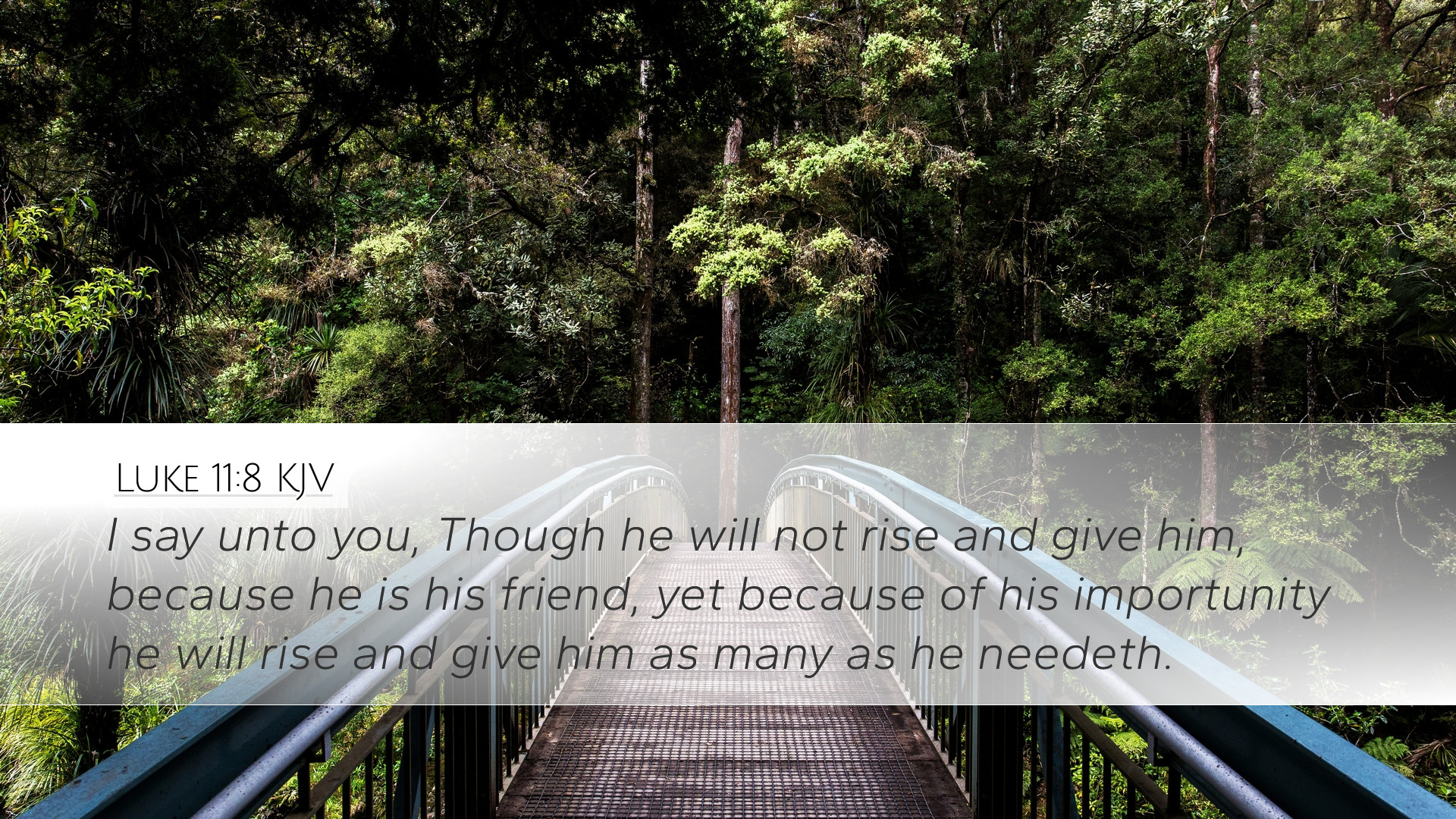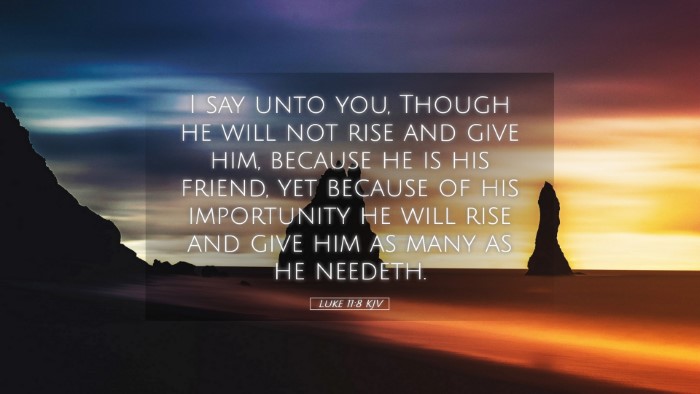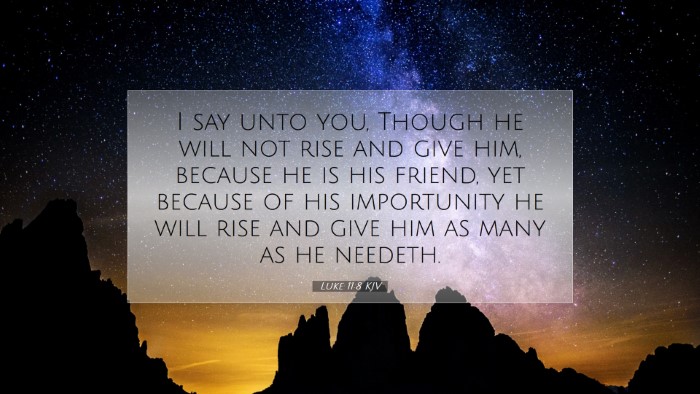Commentary on Luke 11:8
Verse Text: "I tell you, even though he will not get up and give you the bread because of friendship, yet because of your shameless audacity he will surely get up and give you as much as you need." (Luke 11:8, NIV)
Introduction
Luke 11:8 is part of a larger discourse where Jesus teaches about prayer. This particular verse underscores the nature of persistent prayer and the readiness of God to respond to His people's needs. The parable of the friend at midnight illustrates how persistence in prayer, even in unlikely circumstances, can yield positive results. This commentary draws insights from renowned theologians and biblical scholars to explore the depth of this verse.
The Context of the Passage
Matthew Henry emphasizes that this passage occurs shortly after Jesus teaches the Lord’s Prayer. Here, He exemplifies how believers should approach God—boldly and persistently. The cultural context involving hospitality might suggest that a lack of response from the friend represents an unfortunate breach of duty, highlighting the urgency and need for bread at midnight.
Albert Barnes notes that the act of going to a friend at midnight for bread was a serious matter in Hebrew culture, where hospitality was paramount. The midnight hour emphasizes the desperation of the situation, reflecting the spiritual urgency and boldness believers must possess in seeking God’s provision.
Understanding "Shameless Audacity"
The term "shameless audacity" (or "importunity" in older translations) requires careful exploration. Adam Clarke conveys that the Greek word conveys a sense of persistent boldness that goes beyond normal politeness. It signifies pressing through discomfort and customary barriers to fulfill one's need. Here, the friend’s persistence is not simply about asking but about demanding in a manner that reflects both need and desperation.
Matthew Henry comments further, illuminating that in highlighting "shameless audacity," Jesus places an encouragement for His followers to approach God with a similar tenacity. This emphasizes that prayer should not only be a ritual but a demonstration of faith and urgency in seeking God’s support.
The Nature of God’s Response
Albert Barnes' commentary focuses on the assurance that God responds to such persistence. Jesus asserts that even reluctant friends will eventually respond to urgent needs, teaching that God, who is more loving than earthly friends, will certainly respond to the prayers of His people. This assurance serves to deepen our trust in God’s willingness to provide not only for our physical needs but also for spiritual sustenance.
When considering the character of God as the ultimate giver, Matthew Henry points out that the delightful aspect of God's provision is that He is not merely generous; He is also aware of our needs before we even articulate them. This brings comfort that God is always attentive to our requests, especially when they are made with persistent faith.
Applications of the Passage
This verse holds several applications for the church and individual believers:
- Encouragement to Pray Persistently: Believers are encouraged to approach God consistently and boldly, appealing to His nature as a loving Father.
- Understanding God’s Character: Recognizing that our requests are heard and answered based on God’s character—He is good, loving, and attentive to His children.
- Faith in Trials: When we encounter obstacles in prayer, this passage encourages us to push through and maintain our faith, illustrating that persistence is often required to access the blessings of God.
Conclusion
In conclusion, Luke 11:8 presents a profound teaching on the nature of prayer and God’s willingness to respond to the heartfelt pleas of His people. As highlighted by Matthew Henry, Albert Barnes, and Adam Clarke, the call to boldness in prayer reminds us that God is always listening and ready to answer. This scripture invites all believers—pastors, students, theologians, and scholars alike—to reflect on their practice of prayer and to embody a spirit of persistent faith that mirrors the tenacity implied in this parable.


